Shifting Systems, Collectively
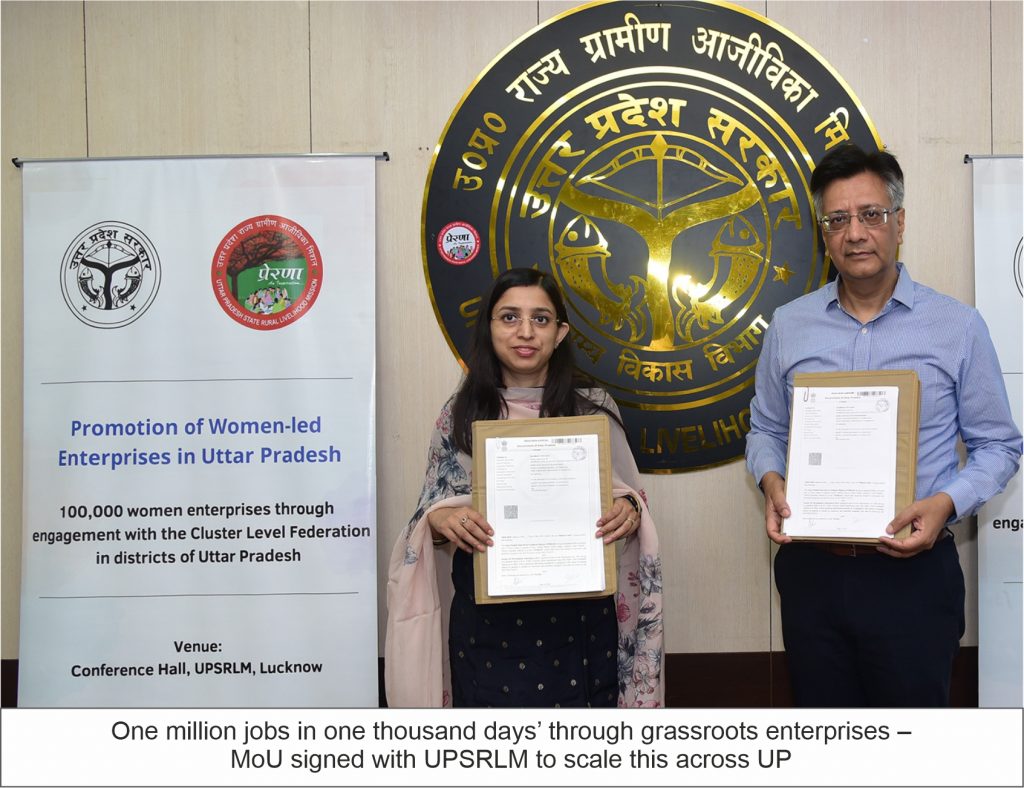
Collective action has been an integral part of Development Alternatives’ approach to creating impact at scale. Unique to most civil society organisations in India, we have, since the late 1980s, built programmes around three types of collaborative structures: community partnerships, business networks and policy alliances.
In the last decade, the organisation has adopted a more systemic view of how cross-sectoral collective action can bring about accelerated, deep and widespread change. This involves work that ranges from grassroots action at the micro-level to policy influence at the macro-level, with a considerable amount of emphasis on bridges being built across scales and among diverse actors by Development Alternatives and its partners at the meso-level.
The June issue of Development Alternatives newsletter highlights the application of this approach and the use of social innovation methods and tools in inclusive entrepreneurship. Our achievements and ambition of creating ‘One Million Jobs in One Thousand Days’ through grassroots enterprises are predicated upon the following:
- The use of deep listening and co-creation tools among rural communities to develop ‘systemic prototypes’ (process innovations to create shifts in community-level social and economic norms).
- The creation of meso-level informal institutions such as the ‘District Entrepreneurship Coalition’, with participation from government agencies, banks, training institutes, non-governmental organisations, leading entrepreneurs and others, to support collective thinking, problem-solving and action on issues that affect marginalised people’s ability to set up enterprises.
- The coming together of national-level civil society organisations, who bring expertise, execution capability and influence in three key areas: governance and policy, access to credit and digital technology.
- The launching of a knowledge-building and sharing vehicle, the ‘Centre for Social Innovation and Inclusive Entrepreneurship’ and ‘Samudyam’ – a platform for greater equity and inclusion in grassroots entrepreneurship.
Deep, transformative, multidimensional, long-lasting impact in rural communities, particularly in the lives of women, cannot be achieved through ‘projects’ and is unlikely to happen through government enterprise development programmes or private sector expansion of supply chains. Social enterprises will have a limited and localised impact. Hence, our obsession with the creation of thousands of block-level micro-movements, in which collective action fuels systemic shifts in the entrepreneurship and livelihoods landscape.
In our view, the tools, skills and knowledge required for collective action among horizontal configurations of like-minded actors, i.e., partnerships, networks, consortia, etc., have evolved rapidly and are fairly well-known and accessible. Less is known, however, about processes that would need to be put into place in situations where collective action is anticipated between actors who have vertical relationships and when one/some of the collaborators are the primary source of funding (a donor) or in a position of power (e.g., a government body). There is an urgent need for initiatives that explore this space and identify the means that will fuel effective collaboration across sectors and scales.
Regarding Development Alternatives’ role, we have prioritised ‘evidence-based learning’ from intensive engagement on the ground, the emergence of meso-level ‘collaborative institutional configurations’ and broad-based ‘knowledge sharing by practitioners, for practitioners’. Looking ahead, our work is poised to alter the way underprivileged communities perceive entrepreneurship and, perhaps more importantly, how other stakeholders perceive women and youth in these communities – from being beneficiaries who need to be supported through government programmes to being potential entrepreneurs and focal points of social and economic transformation.
The views expressed in the article are those of the authors and not necessarily those of Development Alternatives.
This blog first appeared as an editorial in Development Alternatives Newsletter June, 2024 https://devalt.org/newsletter/45


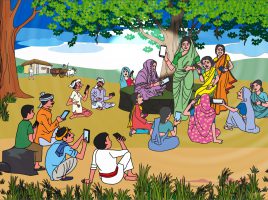
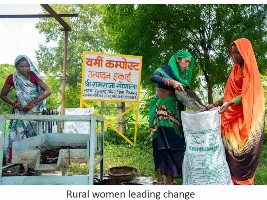
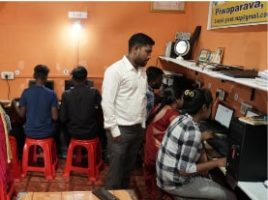
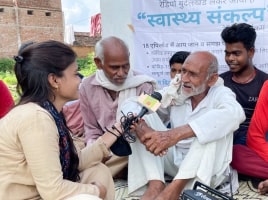
Leave a Reply